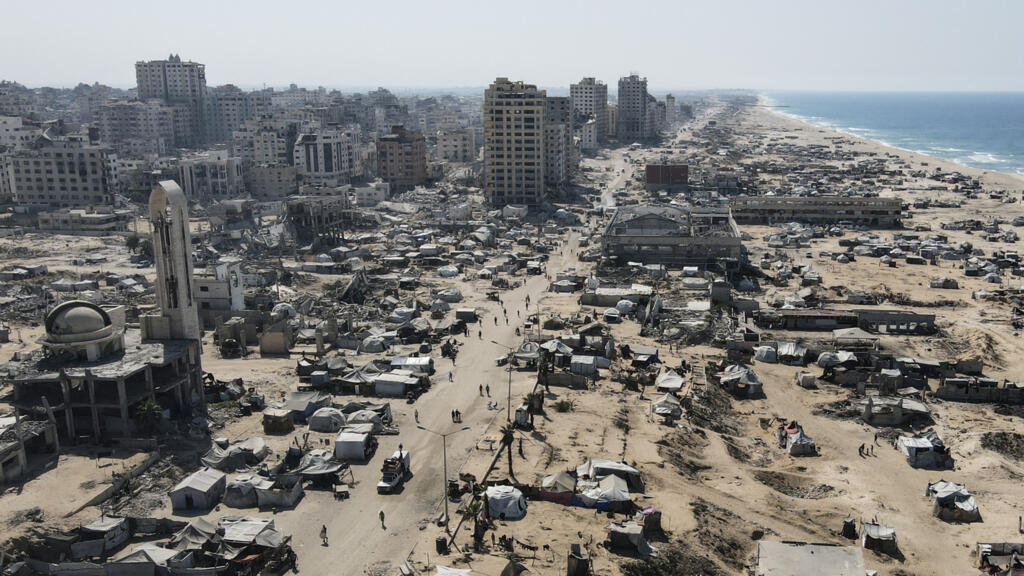European Union leaders are pushing for a bigger role in Gaza and the West Bank after being left out of the US-brokered ceasefire agreement between Israel and Hamas.
Meeting in Brussels for a summit dominated by Ukraine and Russia on Thursday, the 27 EU heads of state are also focusing on the fragile truce in Gaza and how the bloc might help stabilise the enclave.
The EU is the biggest donor of aid to Palestinians and Israel’s largest trading partner – a sign of its potential influence.
“It is important that Europe not only watches but plays an active role,” said Luxembourg’s Prime Minister Luc Frieden as he arrived at the summit. “Gaza is not over; peace is not yet permanent.”
Pressure on Israel
The conflict has exposed divisions inside the EU and driven relations with Israel to historic lows. In September, European Commission President Ursula von der Leyen said Brussels would pursue sanctions and a partial suspension of its trade deal with Israel to push for lasting peace in Gaza.
Momentum slowed after US President Donald Trump pushed through a ceasefire. But with violence still flaring in Gaza and the West Bank, some European leaders want the bloc to keep up the pressure.
From Dublin to The Hague, there are calls to maintain threats of sanctions on Israeli cabinet ministers and settlement activities, along with planned trade restrictions.
Those governments see such measures as leverage to persuade Israel to limit its military actions and commit to longer-term stability.
France’s Macron repeats warning on Netanyahu’s military plan for Gaza
Europe pushed aside
Israeli Prime Minister Benjamin Netanyahu said earlier this month that “Europe has essentially become irrelevant and displayed enormous weakness”.
That remark has added urgency to Europe’s push to regain influence.
Having been sidelined during the ceasefire talks, EU officials are now trying to be part of the next phase – rebuilding Gaza and managing its fragile peace.
EU foreign policy chief Kaja Kallas said Europe “should play a role in Gaza, not just pay for it”.
The bloc has long backed the Palestinian Authority, which governs parts of the West Bank, and has pledged major humanitarian aid for Gaza.
Israel says Rafah crossing will reopen as more hostages identified
Concrete involvement
Among the EU’s proposals is an idea to extend its existing West Bank police support mission into Gaza, strengthening a planned stabilisation force under the 20-point ceasefire plan.
Brussels has also requested a seat on the plan’s transitional Board of Peace, said Dubravka Suica, European Commissioner for the Mediterranean.
Several member states are already taking part in the US-led effort monitoring the truce. Denmark and Germany have joined the new Civil-Military Coordination Centre in southern Israel.
Meanwhile, the European Border Assistance Mission in Rafah, set up in 2005, has begun restarting its work.
Earlier this year, it deployed 20 border security experts from Italy, Spain and France.
During the previous ceasefire in February and March, the mission helped more than 4,000 people, including nearly 1,700 medical patients, leave Gaza before renewed fighting forced a pause.
Macron recognises Palestinian state at UN, defying Israel and United States
Member states act alone
Some EU states have taken their own measures to show anger over Israel’s military campaign.
Spain has gone the furthest, with Prime Minister Pedro Sánchez calling the war a “genocide” and announcing an arms embargo and a ban on Israeli-bound fuel shipments through Spanish ports.
Slovenia followed in August with its own arms embargo – a first for an EU member.
Some national broadcasters have also suggested excluding Israel from the next Eurovision song contest. Member broadcasters will vote in November on whether Israel should compete.
Despite internal divisions, EU leaders want the ceasefire to be the start of a new phase of involvement.
(with newswires)
